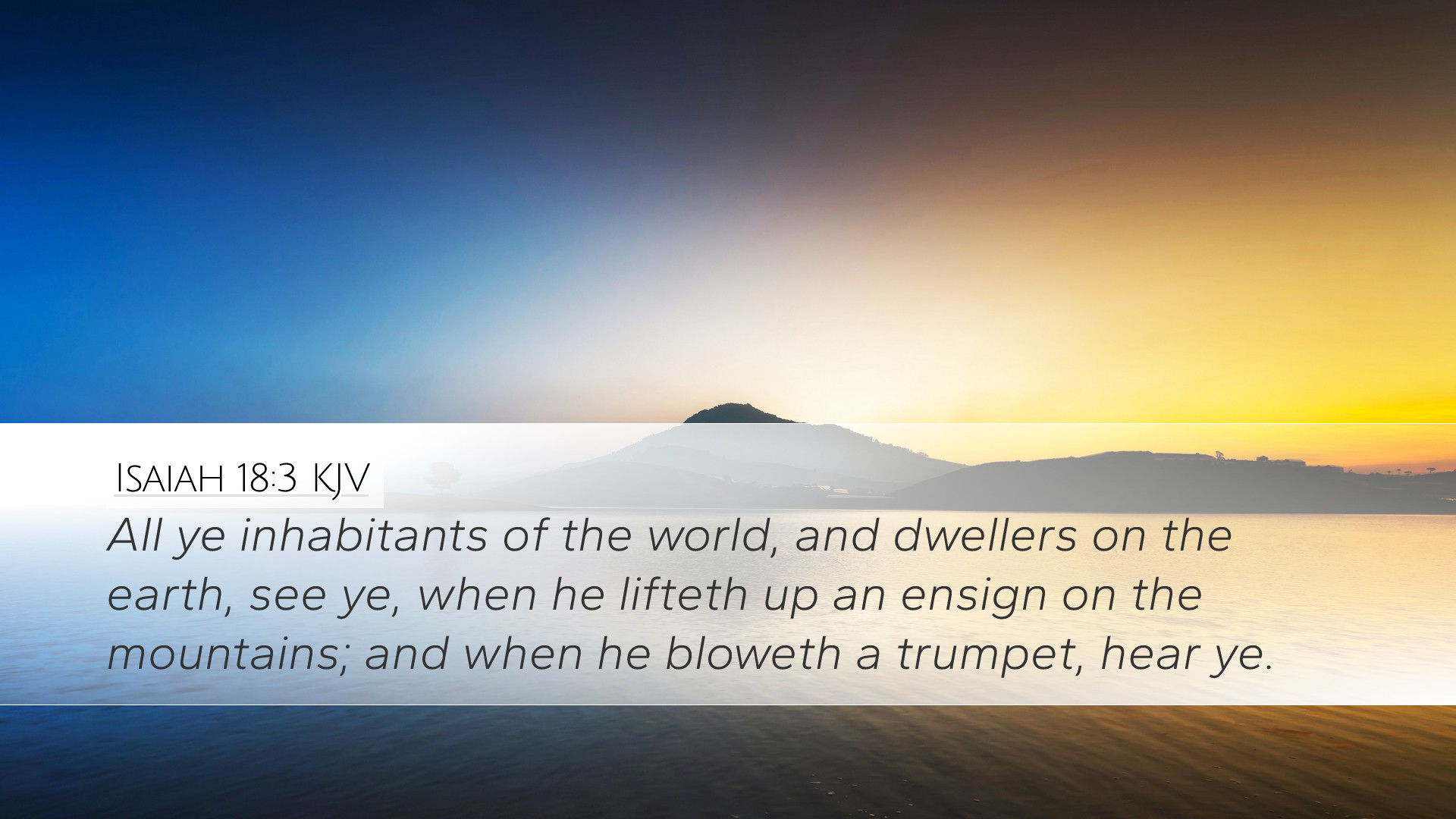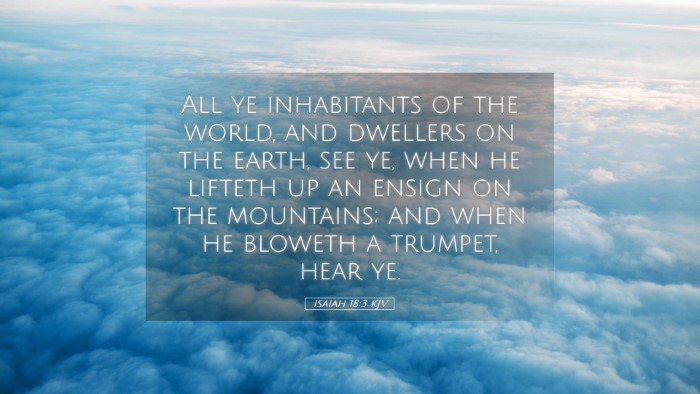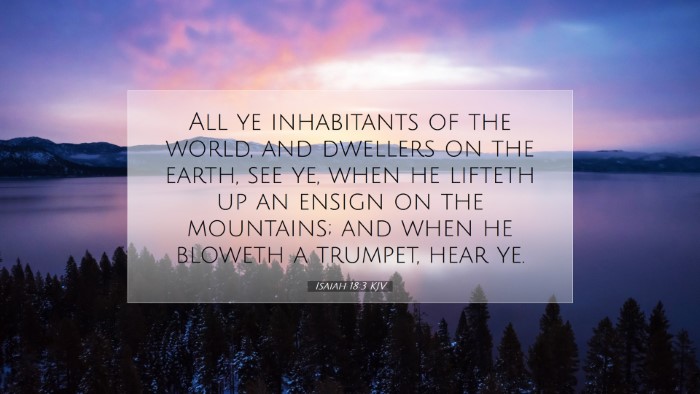Isaiah 18:3 - Commentary Summary
"All ye inhabitants of the world, and dwellers on the earth, see ye, when he lifteth up an ensign on the mountains; and when he bloweth a trumpet, hear ye." (Isaiah 18:3)
Introduction
The verse in question, Isaiah 18:3, calls out to the inhabitants of the earth, urging them to observe a specific signal—the raising of an ensign and the blowing of a trumpet. This call has profound implications for understanding God's sovereignty and purpose among the nations. Esteemed biblical scholars such as Matthew Henry, Albert Barnes, and Adam Clarke have elaborated on the theological significance, context, and interpretation of this verse within the larger narrative of Isaiah.
Contextual Analysis
Isaiah 18 is situated in a section of the book that addresses the surrounding nations of Israel and Judah. It references Ethiopia or Cush, a region noted for its wealth and distant lands. The ensign signifies God's declaration of intent, a summons to witness His actions in history. Scholars emphasize that understanding the historical context is crucial for grasping the full import of God's messages to both His people and the world.
Historical Background
Henry articulates that this chapter was likely directed towards Ethiopia during a period when they were engaged in conflict or alliance with surrounding powers. The prophetic call serves as both a warning and an invitation, highlighting God’s authority over the nations. Clarke further explains that the mention of Ethiopia reflects a divine awareness of distant lands, as God orchestrates the fates of nations.
Theological Implications
This verse emphasizes the universal nature of God's message, extending beyond Israel to all peoples. Barnes notes the importance of the ensign as a symbol of divine action, representing either military power or a sign of divine presence and guidance. The trumpet symbolizes announcement and alarm, indicating that something of great significance is about to occur.
God's Sovereign Authority
Central to the commentary is the notion of God’s sovereignty. The act of raising an ensign indicates a clear proclamation by God that demands attention. This correlates with the recurring theme in Isaiah of God as the ultimate ruler who directs the affairs of nations. The scholars collectively emphasize that attention to this ensign is not merely a call to watchfulness but a summons to respond to God’s initiative in history.
Practical Application
The implications for believers today are profound. As Henry posits, this call to observe prompts modern readers to remain vigilant and attuned to God’s work in the world. This vigilance involves not just passive observation but active engagement and readiness to respond to God’s leading.
Worship and Response
For pastors and theologians, this passage serves as a reminder of worship's corporate and universal dimensions. The ensign should prompt collective response—an acknowledgment of God’s authority. The act of blowing the trumpet invites participation, suggesting that the faithful are called to declare God’s glory and faithfulness in their communities.
Cultural Significance
The cultural connotations of the ensign and trumpet in ancient practice bear significant weight. Clarke points out that trumpets were commonly used for summoning people to worship or war, signifying both purpose and importance. This remains relevant for contemporary church practice where leaders are encouraged to raise a spiritual "ensign," calling individuals and communities to action, recognition, and unity under God’s banner.
Conclusion
Isaiah 18:3 encapsulates a call to awareness and action that transcends its historical context, addressing modern believers with a prophetic challenge. In a world filled with distractions, the call to 'see' and 'hear' provides a necessary reminder to focus on God’s sovereign work and response to His divine prompting. As scholars and pastors engage with this text, it becomes a source of inspiration to fervently respond to the higher purpose set forth by God for His people.
Summary of Insights
- Universal Call: God invites all nations to witness His sovereignty.
- Significance of the Ensign: Acts as a proclamation of God's intention.
- The Role of the Trumpet: A summons to hear and respond to divine action.
- Engagement of the Faithful: Calls for active participation in God's plans.
- Awareness of God's Work: Encourages vigil and readiness in a believer's life.


